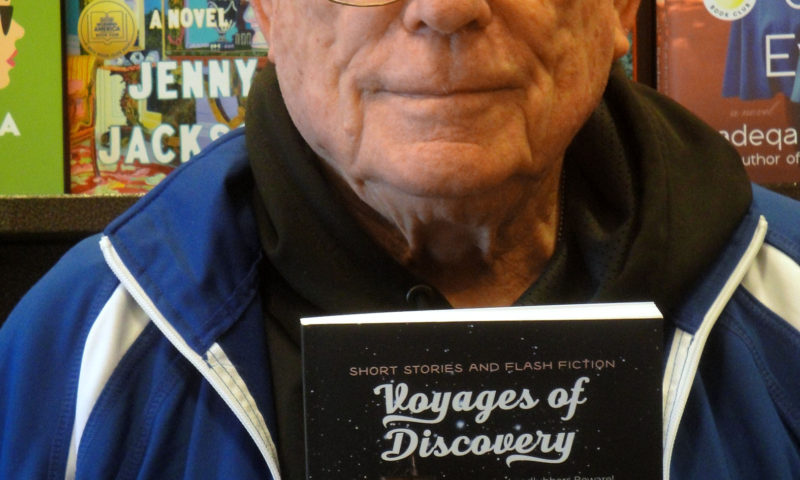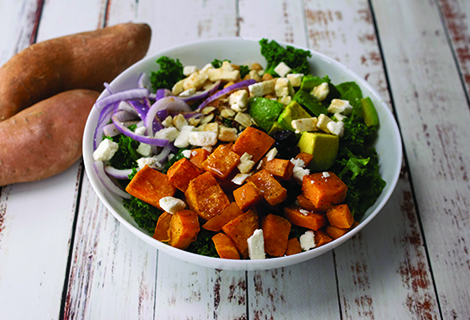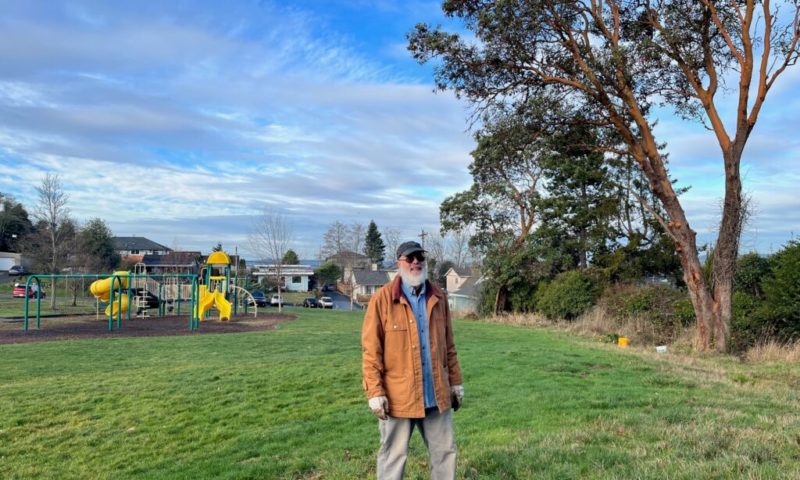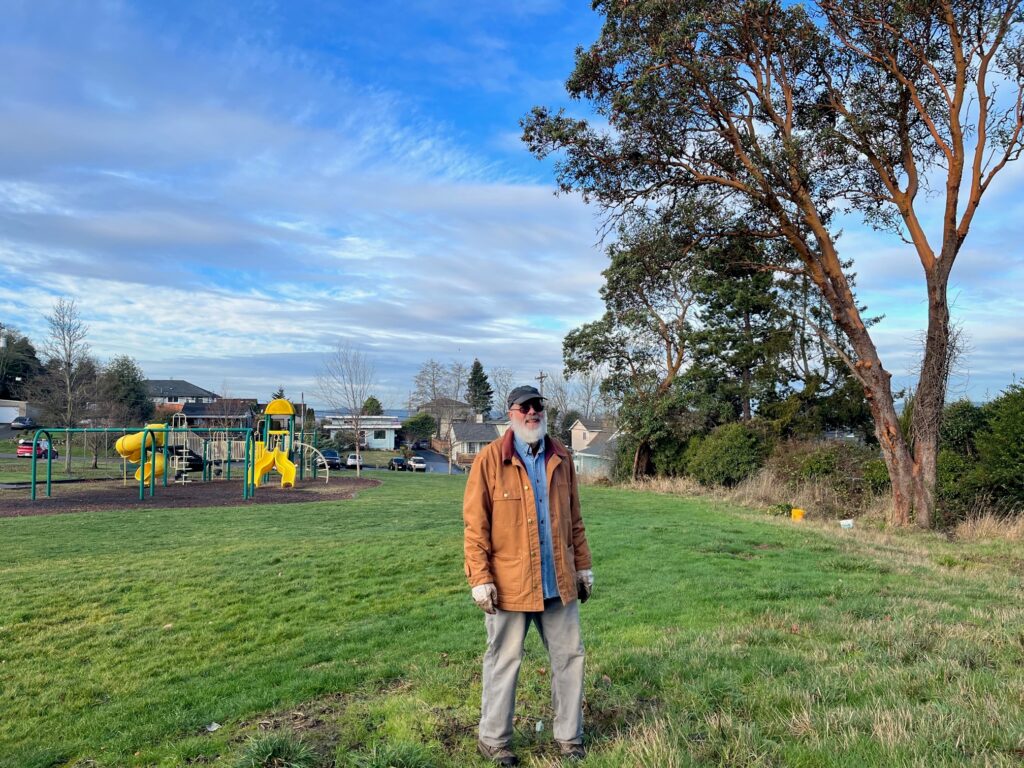‘Never too old’ are words to live by
By Barbara Sellers
What motivates senior citizens to get out of bed every morning, keep on going, and actively participate in community activities? Perhaps a retiree who has been residing in the Tacoma area for the last 38 years can answer that question and one more” How old is too old to make a dream come true or start a new career?
At 88, Donald R. Sellers, a retired Air Force lieutenant colonel, recently published his first book, “Voyages of Discovery.”
“My original intentions were to publish some of my short stories as a legacy for family and friends,” Sellers said. “Since then, I’ve been encouraged to open up distribution and see what happens.”
Besides promoting his new book (now available on Amazon in hardcover, softcover and e-book), Sellers remains active in speaking and writing organizations, too. As a 39-year member in Toastmasters International, he served as president of Club 1123 several times. He also served in area and division upper-leadership positions, started the Chit Chatters club at the Western Washington Women’s prison, and as the 1993 elected District 32 governor, he earned the Distinguished District Award. He’s now mentoring five Toastmaster members, and is president of the Plateau Area Writers Association and the lead for a writing critique group, Writers Helping Writers.
One thing Sellers enjoys most about writing fiction is the act of creation.
“I can sit down for an hour or two and leave this world,” he said. “It’s especially rewarding when I read a story I wrote 15 years ago and find I can still relish the experience. Sometimes I exclaim in surprise, ‘I wrote that? Wow! That’s much better than I anticipated.’”
Reading is another passion Sellers has always had. In fact, when Sellers was a young boy, a neighbor lady paid him to read to her.
“I don’t remember how or where I learned to read,” he said. “But I could read and understand the newspaper when I was in first grade.”
Ever since then, Sellers has been a book-lover and avid reader. In his 20s, he mostly read science-fiction, but today his writing and reading sweeps across many genres, including fiction, non-fiction, and poetry.
“I read in most genres except romance,” he said. “I usually have three or four books open. Currently, I’m reading fantasy, health maintenance, and a memoir by a member of my writer’s association.”
Sellers believes the books he read by great authors helped him develop his writing skills.
“I believe working with writing groups and serving as an editor increases writing skills, too,” he said. “I subscribe to three writing magazines and have 47 self-help writing books in my library.”
It would be difficult to know how many books he has read, but he has read some of his favorites several times. For example, he read “Dandelion Wine” by Ray Bradbury nine times, “Fahrenheit 451” by Bradbury four times, “Grapes of Wrath” by John Steinbeck five times, “The Winter of our Discontent” by Steinbeck four times, and many others two or three times.
So far, Sellers has written 16 short stories, nine flash fiction and 16 newspaper commentaries.
He first became interested in writing in his teen years but put it on hold to make a living in the military.
What goal or hope does Sellers have for his reading fans?
“What I hope for is reading-enjoyment and pleasure,” he said. “Some of the stories have surprise endings and some of the stories just recreate specific moments. One of the lessons I’ve learned from my studies is this: If we can’t feel the feelings and emotions of our characters, how can we expect the reader to gain the same expectations? With some of these stories, I break down with emotion and sometimes tears blur my eyes and I can’t read further.”
So how old is too old to make a dream come true or start a new career?
“We’re never too old,” Sellers said. “Each new day is a gift, and as long as we’re still breathing, we should continue to do something to make every day count. I know I will, even if I live to be 100.”
Barbara Sellers is a former newspaper editor and has two published books available through Amazon –“Get Tough or Die: Why I Forgave My Parents for My Abusive Childhood” and “That’s Life in Poetry and Short Stories.”



